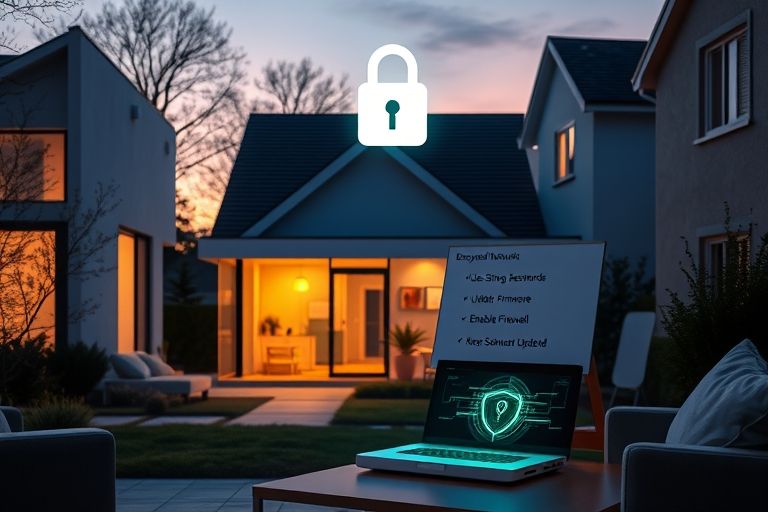
In today's digital age, securing your home network is more important than ever. With cyber attacks becoming more common and sophisticated, it's crucial to take steps to protect your personal information and devices. Here are some tips to help you secure your home network:
One of the first things you should do is change the default login credentials for your router. Hackers often use default usernames and passwords to gain access to a network, so it's important to create a unique and strong password.
Default username: admin
Default password: password
Instead, create a strong password with a combination of upper and lowercase letters, numbers, and symbols. Avoid using personal information like your name or birthdate, as these can be easily guessed.
Outdated software and devices can leave your network vulnerable to cyber attacks. Make sure to regularly update your devices and software to the latest versions, which often include security patches and bug fixes.
According to a study by AV-TEST, a security research institute, there were 350,000 new malware samples detected every day in 2020. Keeping your devices and software up to date can help protect against these threats.
Encryption and strong passwords can help protect your data from being intercepted by hackers. Make sure to use strong encryption protocols like WPA2 for your Wi-Fi network, and create strong passwords for your devices and accounts.
A study by SplashData found that "123456" and "password" were the most commonly used passwords in 2020. Avoid using easily guessable passwords and instead create a strong and unique password for each device and account.
Two-factor authentication adds an extra layer of security to your accounts by requiring a second form of authentication, such as a code sent to your phone or email. Enable two-factor authentication for your important accounts, such as email and banking.
A study by Google found that enabling two-factor authentication can prevent 99% of automated attacks on your account.
A firewall can help block unauthorized access to your network and devices. Make sure to enable your router's built-in firewall and consider using a software firewall on your devices as well.
A study by the University of Maryland found that there is a cyber attack every 39 seconds on average. Using a firewall can help prevent these attacks from being successful.